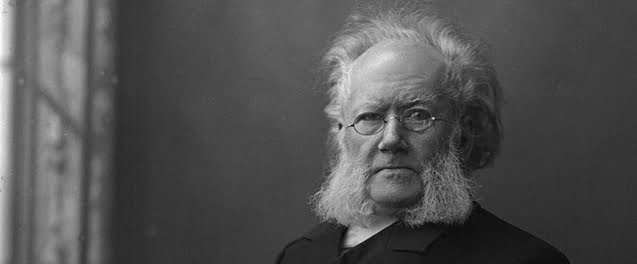
Henrik Ibsen, playwright of realism
On this day in 1828 Norwegian playwright Henrik Ibsen was born. Ibsen did not really achieve recognition until the play Peer Gynt appeared, by which time he was nearly 40. He produced a series of wonderful works including The Wild Duck, A Doll’s House and Hedda Gabler which gained worldwide fame.
He is considered a modernist writer because of his realism and clear-eyed look at peoples’ behaviours and their consequences. His topics, such as the ravages to a family caused by a father’s venereal disease (Ghosts) were almost unbearable for Victorian audiences and caused considerable controversy.
No wonder he is called the father of realism. He died at home, and his last words were ‘on the contrary’ – when he heard the nurse say he was feeling better. A realist to the last.
This famous poem by Christina Rossetti is about saying goodbye:
When I am dead, my dearest,
Sing no sad songs for me;
Plant thou no roses at my head,
Nor shady cypress tree:
Be the green grass above me
With showers and dewdrops wet;
And if thou wilt, remember,
And if thou wilt, forget.
I shall not see the shadows,
I shall not feel the rain;
I shall not hear the nightingale
Sing on, as if in pain:
And dreaming through the twilight
That doth not rise nor set,
Haply I may remember,
And haply may forget.
Today I will stop making up plays and dramas for myself but I will concentrate on showing my real self and keeping it simple.
